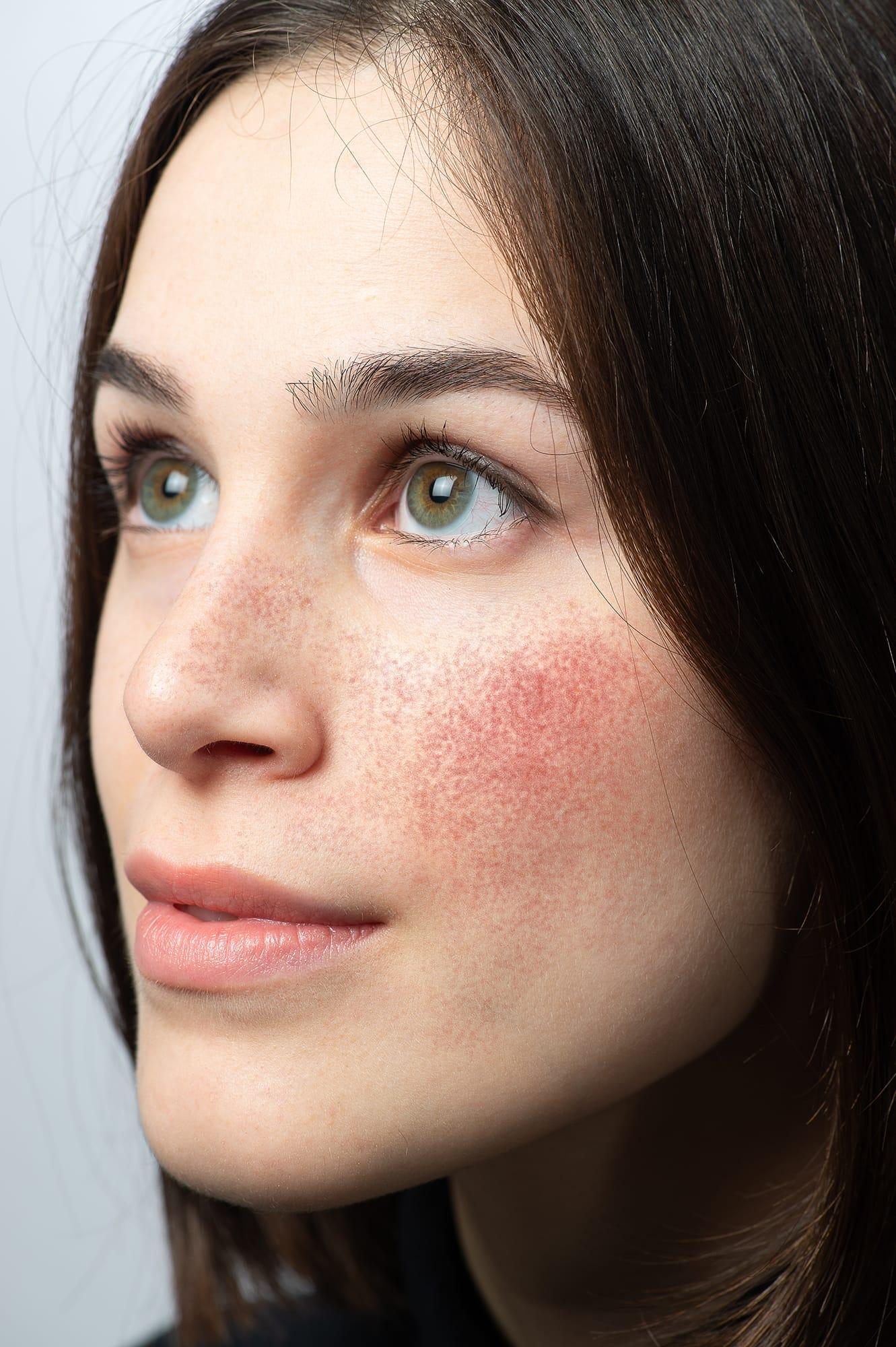Rosacea is an inflammatory skin disorder characterized by redness on the face (usually around the cheeks, nose or chin).
It may also cause bumps or pimples on the affected area as well as burning sensations in some cases.
Although it usually only affects adults between 30-50 years old, anyone can develop rosacea at any age.
What Causes Rosacea?
The exact cause of rosacea is unknown but there are several factors that may contribute to its development such as genetics, environmental triggers like sun exposure or stress levels.
Genetics: Studies have shown that genetics play a role in who develops rosacea with certain genes making individuals more prone to developing it than others.
Environmental Factors: Certain environmental factors such as sun exposure and extreme temperatures can trigger flare ups in those already suffering from rosacea. Other triggers include stress, alcohol consumption and spicy foods.
Microorganisms: A type of bacteria known as Demodex folliculorum has been linked to causing inflammation associated with rosacea although further research needs to be done before any conclusions are made about its exact role in triggering flare up's.
What are the Symptoms of Rosacea?

Redness/Flushing: The most common symptom is persistent redness or flushing across your cheeks, forehead, nose or chin which may come and go depending on what triggers it .
Bumps and Pimples: Some sufferers experience small bumps or pimples along their facial features due to blocked pores caused by excess oil production . These often look similar to acne but without blackheads present.
Burning Sensations: Another symptom experienced by many patients is a burning sensation across their face which could indicate sensitivity towards certain products being used topically such as moisturizers etc.
At her clinic in Sevenoaks Dr. Paulina Charlesworth will conduct a full consultation to identify what symptoms you might be experiencing.
How do you treat Rosacea?
The best aesthetic treatment for rosacea is often a combination of medical grade skincare, chemical peels, which can help keep the symptoms under control, and Radiofrequency microneedling, to improve skins sensitivity and reactivity. Dr Paulina can also recommend ReBRIGHT® IPL treatment for rosacea.
For rosacea management and treatment at home, Dr Paulina can create a bespoke treatment plan, utilising professional medical grade ZO® Skin Health rosacea products.
Dr Paulina’s medical grade IPL is a fantastic al round treatment for rosacea. IPL light targets redness to improve rosacea skin’s uneven tone and redness and also specifically targets small vessels that can be very prominent in rosacea. Finally, fractional laser can help even out any roughness of the skin.
